The Living Wonders climate cases have generated considerable public interest. These legal updates provide factual information about the proceedings and where they are up to.

Living Wonders appeals in court – Day 2 recap
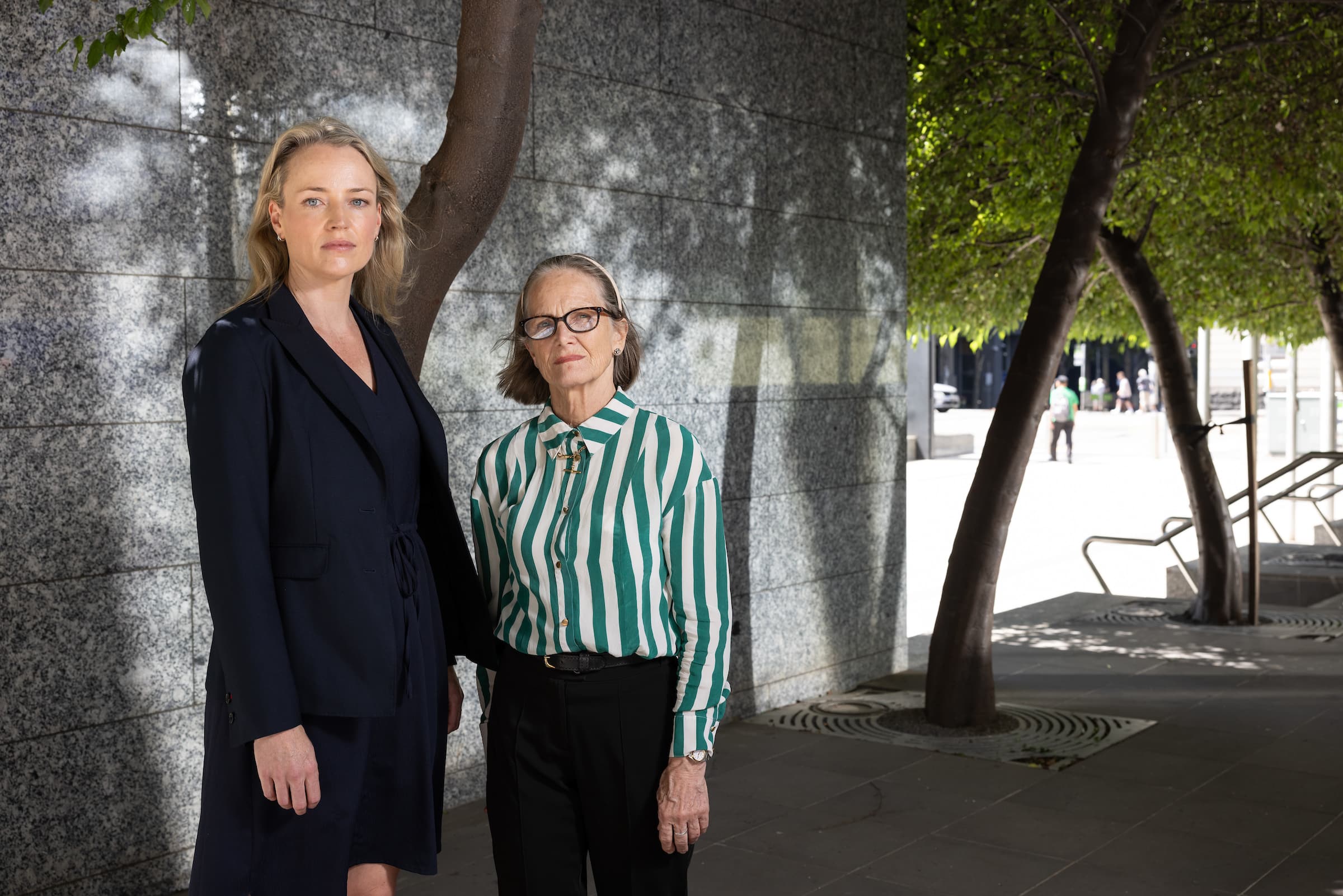
Living Wonders appeals in court – Day 1 recap
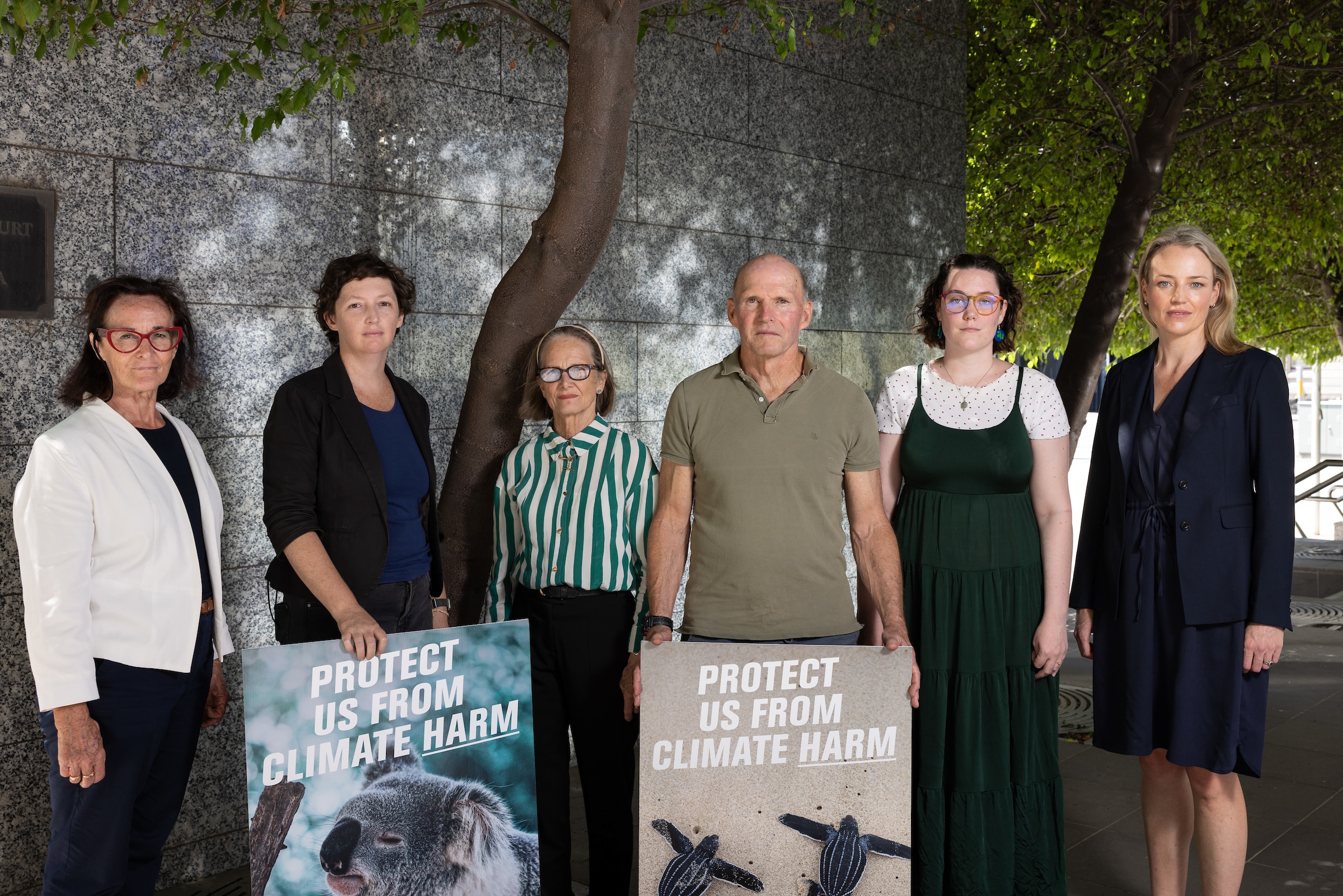
Watch the Federal Court livestream

Minister agrees not to approve coal or gas plans before cases decided
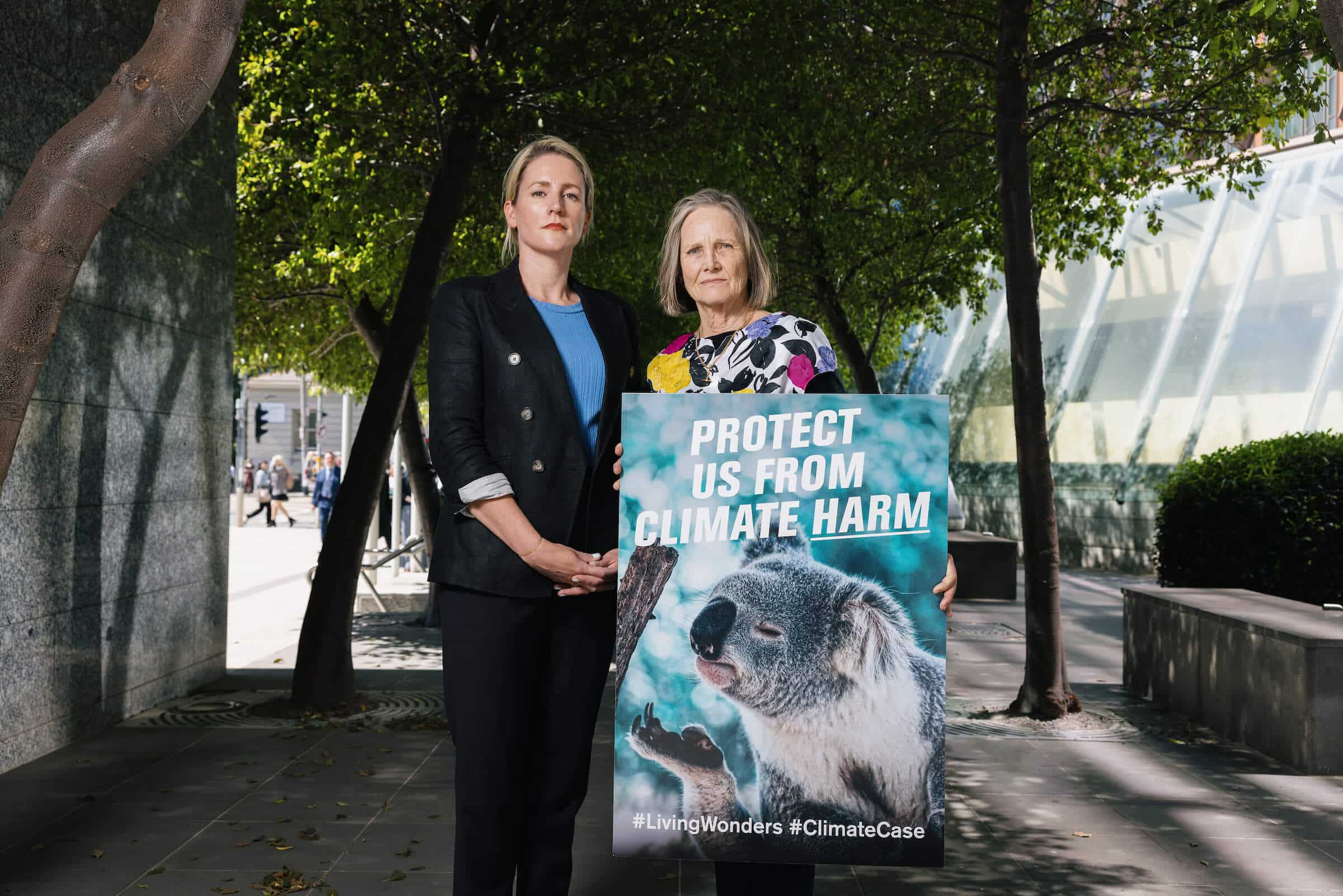
Appeals filed to the Full Federal Court
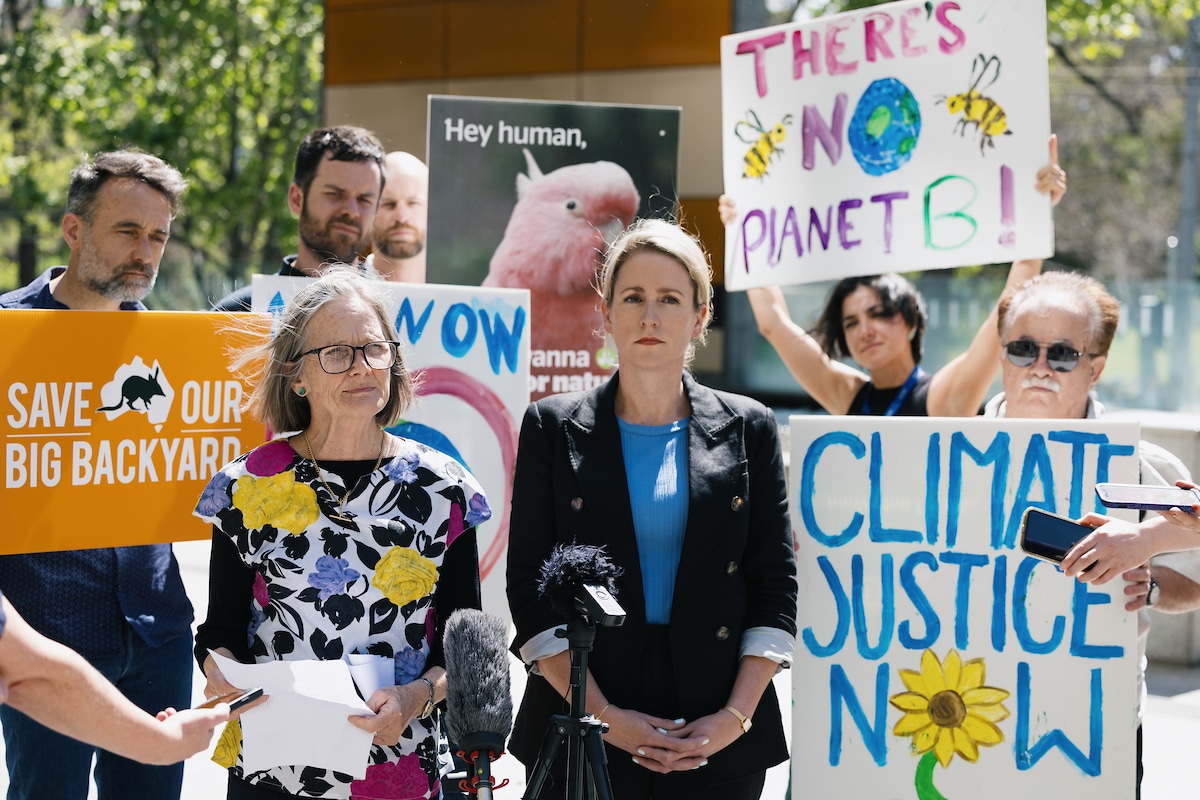
Living Wonders climate cases dismissed
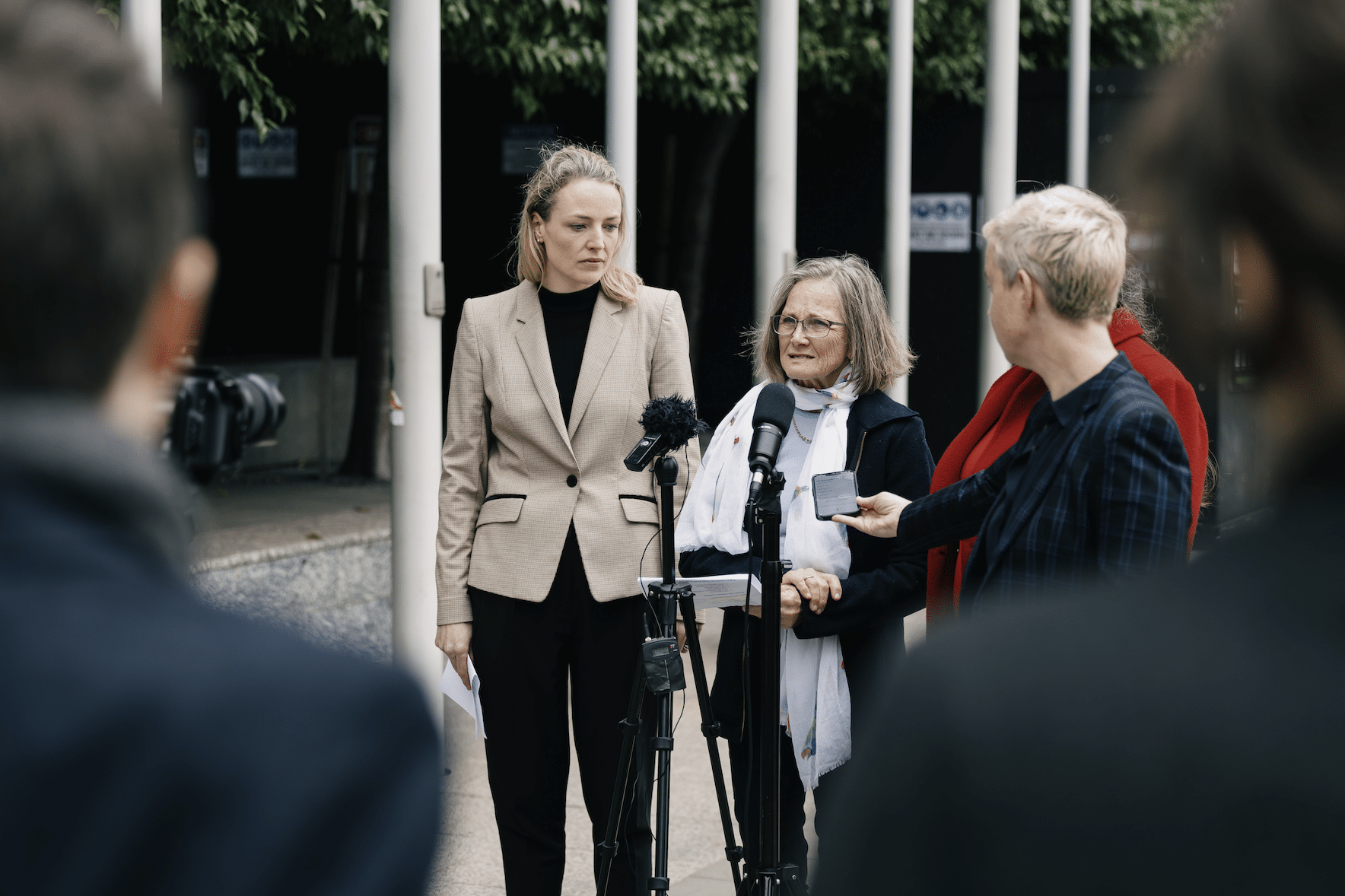
Verdict due in landmark climate cases

Day 3 in the Federal Court - legal update

Day 2 in the Federal Court – legal update

Day 1 in the Federal Court – legal update
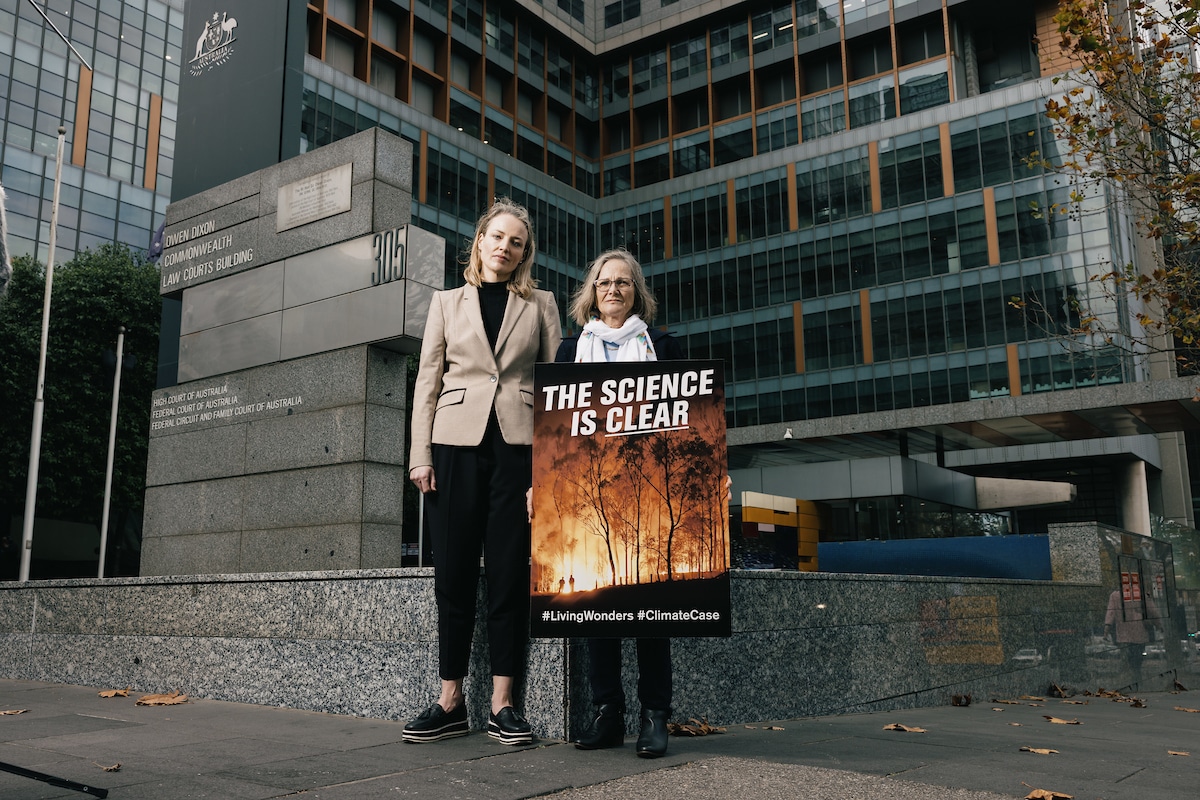
Pre-hearing summary
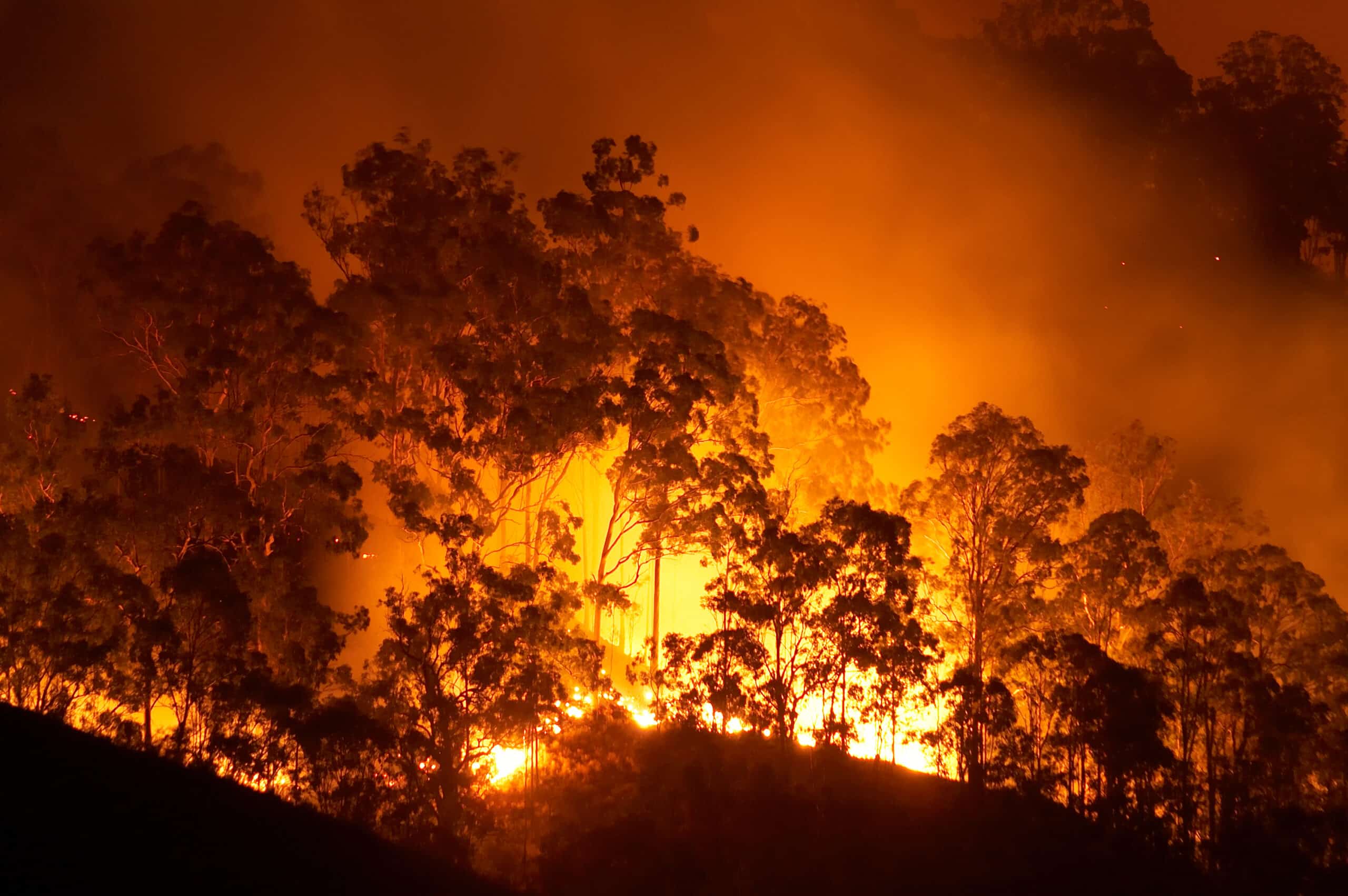
Reconsideration requests refused

Unpacking the drug dealer's defence
Living Wonders appeals in court – Day 2 recap
13 February 2024
The appeals in the Living Wonders climate cases continued today in the Full Federal Court of Australia, before their Honours Chief Justice Mortimer, Justice Horan and Justice Colvin.
In the morning, Michael Izzo SC made oral submissions on behalf of the Second Respondents, MACH Energy Pty Ltd (the proponent of the Mount Pleasant Optimisation coal project) and Narrabri Coal Operations Pty Ltd (the proponent of the Narrabri Underground Stage 3 Extension coal project).
The Second Respondents responded to each of ECoCeQ’s grounds of appeal, arguing the Minister’s decision to refuse to change the risk assessment decisions following ECoCeQ’s reconsideration requests for the two coal mines was in line with what the national environmental law required her to do.
One of the submissions Mr Izzo SC made on behalf of the Second Respondents is that ECoCeQ’s arguments mischaracterised the Minister’s reasons for her decision. Mr Izzo said the Minister had not made a positive finding that if the mines did not proceed, the coal (and emissions) they would have produced would be created by other mines anyway (the ‘market substitution’ reasoning which was a key aspect of ECoCeQ’s case).
Rather, the Second Respondents argued, the Minister identified this possibility as one of many variables influencing the potential contribution the mines would make to global warming, and then decided that because of these many variables, she could not be satisfied the information provided to her by ECoCeQ showed the mines would have an ‘impact’ on the species and places protected by the national environment law. The Second Respondents argued that this means ECoCeQ’s submissions about it being unlawful for the Minister to use substitution reasoning to ‘net off’ or negate the potential impacts of proposed projects were incorrect.
After lunch, Stephen Lloyd SC made arguments against ECoCeQ’s case on behalf of Minister Plibersek.
Mr Lloyd took the Court to relevant sections of the national environment law, and then to parts of the Minister’s reasons that, Mr Lloyd submitted, illustrated that Minister Plibersek accepts that climate change is occurring. Mr Lloyd submitted that the Minister accepted each coal project would lead to indirect consequences from climate change for species and places protected by the national environment law, but that she found that each mine would not be a substantial cause of the adverse effects of climate change on these species and places.
Mr Lloyd argued that, contrary to ECoCeQ’s arguments, the way the Minister made these findings was a correct application of the law.
In the afternoon, Mr Nevkapil SC closed the hearing with submissions in reply on ECoCeQ’s behalf.
Mr Nevkapil disputed some aspects of how the First and Second Respondents had characterised the Minister’s reasons, and responded to how Mr Lloyd argued the test for whether something is an ‘impact’ under the national environmental law should be interpreted.
Their Honours reserved their decision, with judgment to be delivered at a later date.
Living Wonders appeals in court – Day 1 recap
12 February 2024
The appeals for the Living Wonders climate cases began today in the Full Court of the Federal Court of Australia, before their Honours Chief Justice Mortimer and Justices Colvin and Horan.
The appeals are against Justice McElwaine’s decisions in Environment Council of Central Queensland v Minister for the Environment (No 2) [2023] FCA 1208.
These cases are about whether the environmental risk assessment for two large coal projects, the Mount Pleasant Optimisation and the Narrabri Underground Stage 3 Extension, made under Australia’s national environmental law should have included scrutiny of the impacts of fossil fuel-driven climate change on the nationally protected species, ecosystems and places protected.
For a full recap of the initial hearings in September last year, read more here.
In court today
Today in court, ECoCeQ’s barrister Emrys Nekvapil SC set out the grounds of ECoCeQ’s appeals against Justice McElwaine’s decisions.
Ground 1: the Minister’s task under the national environmental law is to consider the likely consequences of the actual action that is being proposed, and not what might happen in another, hypothetical world.
When the Minister refused ECoCeQ’s reconsideration requests for the Mount Pleasant and Narrabri coal projects last year, she reasoned that if the two coal projects do not go ahead, other companies will dig up other coal and the same amount of greenhouse gas emissions will occur anyway. It follows that approving these two coal mines would not cause a ‘net’ increase in global emissions and would not, therefore, have an ‘impact’ on protected species and places. This is known as ‘market substitution reasoning’.
ECoCeQ argues that using ‘market substitution reasoning’ is not a legally permissible way for the Minister to approach that task.
Mr Nekvapil gave the Court a hypothetical example about chemicals factories around a lake to explain why the approach the Minister took can’t be in line with what the law requires.
According to the example, two competing companies, A and B, propose building a factory that will release cyanide into a nearby lake. There are already several factories releasing cyanide pollution into the lake, and the accumulation of cyanide in the lake is harming a threatened fish species. If the Minister’s approach was correct, then neither company A nor company B’s factory would have any ‘impact’ on the threatened fish because if company A didn’t build its factory, company B would, and vice versa – either way, additional cyanide would be released into the lake. The problem with this, ECoCeQ argues, is that harm from cyanide poisoning would, in fact, occur to the fish if either of the factories was actually built. Therefore, this ‘market substitution’ approach can’t be allowed under a law designed to protect the environment.
Ground 2: the Minister asked herself the wrong question when she considered the impacts of the coal mines.
The Minister asked whether effects of climate change on threatened species and protected places ‘will’ be caused by emissions from the mines. Instead, because of how the law is written, she was also supposed to ask herself whether it was ‘likely’ that the mines would cause these climate harms – which, ECoCeQ says, the evidence demonstrates is the case.
Ground 3: the Minister’s finding that there would be no ‘net increase’ in emissions from the mines was legally irrational.
According to climate science, although there are many different future scenarios that are feasibly possible, it is impossible to know with certainty what will happen in the future. ECoCeQ argues it was therefore irrational for the Minister to assume with certainty that if the relevant coal project didn’t go ahead, equivalent quantities of coal and emissions would be produced anyway – in the process ruling out the many better possible futures where there is no long-running global market for thermal coal.
Ground 4: Justice McElwaine was incorrect to find an expert report about climate science and the modelling of future scenarios was not relevant to ECoCeQ’s arguments and therefore not admissible. ECoCeQ argues that the report is relevant because it sets out why it is impossible to know which possible future emissions and climate scenarios are more likely than others.
Ground 5: the Minister applied the law incorrectly when she concluded that any contribution made by the coal mines to global climate change would not be a ‘substantial’ cause of climate harms to protected species and places.
In her reasons, the Minister compared the volume of emissions resulting from each mine to total global emissions at a single point in the past , and concluded the emissions from the mines were ‘very small’ in that context.
But, in future scenarios where the world succeeds in reducing emissions, total global emissions will drop sharply and, in those better future scenarios, the emissions from the mines would actually make a significant contribution to the seriousness of the impacts of climate change on protected species and places. ECoCeQ argues it was irrational for the Minister to assume global emissions would stay the same in future decades, and to conclude that the emissions from these coal mines are therefore not a ‘substantial’ cause of climate harms to protected species and places.
The hearing will recommence tomorrow, with arguments on behalf of the coal companies in the morning, followed by arguments from the Minister’s representatives.
Watch the Federal Court Living Wonders livestream
The Living Wonders Full Federal Court appeals will commence at 10am on Monday 12 February, and are scheduled to run until 4pm on Tuesday 13 February.
Click this link to go to the Federal Court’s Youtube page.
The Court requests:
- Recording of Court proceedings is prohibited.
- You must ensure your microphone is muted and your video is off for the entire duration of the hearing, if applicable.
- Members of the public are not permitted to actively participate or interrupt Court proceedings. You may be removed from the hearing if you interrupt the proceedings.
- You must comply with any direction the Court may make with respect to public access to the hearing, which may include removing yourself from the livestream.
Minister agrees not to approve new coal or gas plans before Living Wonders appeals decided
ECoCeQ is challenging the Minister’s risk assessment decisions in relation to the Narrabri and Mount Pleasant proposals, marking the first court challenges to a coal or gas decision made by Australia’s current Environment Minister.
Currently, five coal and gas projects subject to the Living Wonders intervention have been either withdrawn by proponents or effectively shelved, and 11 reconsideration requests remain before the Minister awaiting her decision:
- North West Shelf Extension – Woodside Energy – Pilbara, WA
- Alpha North Coal Mine Project – Waratah Coal – Galilee Basin, western Qld
- Gas Supply Security Project, Australia Pacific LNG – Surat and Bowen Basins, central and south-west Qld
- Baralaba South Coal Project – Mount Ramsay Coal Company – Bowen Basin, central Qld
- Moorlands open cut coal mining project – Cuesta Coal – Bowen Basin, central Qld
- Saraji East coal mining project – BHP Billiton Mitsubishi BM Alliance – central Qld
- Winchester South coal mine project – Whitehaven – central Qld
- Lake Vermont Meadowbrook Coal Mine Project – Bowen Basin Coal – central Qld
- Boggabri coal mine expansion – Idemitsu – northern NSW
- Meandu Mine King 2 East Project – TEC Coal (Stanwell) – south east Qld
- Caval Ridge Mine Horse Pit Extension – BHP Mitsubishi Alliance – Bowen Basin, central Qld
As they prepare for their upcoming appeal hearing, ECoCeQ has received written assurance from the Minister that neither the Minister nor her delegate will make any decision to approve either Narrabri, Mount Pleasant or these other 11 pending coal and gas proposals currently before the Minister for reconsideration, until the appeals have been heard and determined.
Some of the proposals subject to the reconsideration requests have recently cleared further hurdles towards approval: Caval Ridge Mine Horse Pit Extension (Qld), Boggabri Coal Mine (NSW) and Winchester South Coal Mine (Qld) and have recently received approval by State Governments.
However none of these proposals can go ahead without the Federal Environment Minister’s final approval.
Further, in line with published departmental policy, the Minister must deal with ECoCeQ’s reconsideration requests before moving to approve any of these proposed projects.
Living Wonders climate cases appealed to the Full Federal Court
The Environment Council of Central Queensland (ECoCeQ), represented by Environmental Justice Australia, has filed two appeals to the full bench of the Federal Court, challenging the Australian Environment Minister’s refusal to scrutinise new coal and gas projects for their climate harm.
The appeals come after Federal Court Judge Justice Shaun McElwaine dismissed the Living Wonders climate cases in early October.
However ECoCeQ, with the greatest respect, believes the Federal Court Judge made the wrong decision.
ECoCeQ argues that, in her decision-making not to change the risk assessment of these mines to account for their asserted climate impacts, Australia’s Environment Minister has not fulfilled her legal role or complied with her obligations under the law. They argue that her approach is irrational and illogical and unlawful.
These are critically important and complex legal questions which the full bench of the Federal Court is now being asked to determine.
ECoCeQ is also calling on the Minister to make an undertaking not to approve these coal mines before these court cases are determined.
Federal Court Judge Justice Shaun McElwaine has dismissed the Living Wonders climate cases - the first court challenges to a coal or gas decision made by Australia’s current Environment Minister.
The Environment Council of Central Queensland (ECoCeQ), represented by Environmental Justice Australia, had sought judicial review of the Minister’s climate risk assessment of two giant coal mines in NSW: Narrabri and Mount Pleasant.
Justice McElwaine found Environment Minister Tanya Plibersek had not acted unlawfully in her application of Australia’s national environment laws as they stand.
He said that because of the way the law is currently written, whether or not the Minister should explicitly consider climate change when making decisions under national environmental laws was a matter for the parliament.
In doing so, the Court explicitly noted the considerable public interest in these cases.
Unless it is appealed, the judgment effectively clears the way for the Minister to ignore climate change in her risk assessment of all new coal and gas projects on her desk – of which there are 25.
ECoCeQ is awaiting an assurance from the Minister that she will not rush to approve these and the other pending coal and gas projects on her desk while it considers its appeal rights.
In her risk assessments for the mines, the Minister had accepted that the information provided to her by ECoCeQ showed that:
- Greenhouse gas emissions from burning coal and gas have severe adverse consequences for our climate;
- Many Matters of National Environmental Significance (nationally protected threatened plant and animal species, and places like World Heritage properties, the Great Barrier Reef and Ramsar wetlands) have been or will be affected by climate change and its effects;
- There is a linear relationship between increases in human-caused greenhouse gas emissions, and increases in global temperature, such that every tonne of emissions adds to global warming; and that
- To limit global warming, deep reductions in greenhouse gas emissions are required.
However, the Minister did not accept that the emissions from these coal mines would have an “impact” on the places and ecosystems protected by the national environmental law, within the definition of “impact” as the law is currently written.
In these circumstances, the Court considered that the case wasn’t about whether the Minister does or doesn’t accept the impacts of climate change on threatened species and protected places.
His Honour considered that, as it is currently written, Australian environmental law gives the Minister “considerable power” to choose how she decides what risks fossil fuel projects pose to the environment.
This considerable power allowed the Minister to employ reasoning that is colloquially known as the “market substitution” or “drug-dealers defence” as well as the “drop in the ocean” logic when making her decision.
Justice McElwaine concluded that the Minister, in deciding that the emissions from these coal mines did not count as an “impact” on places and species protected by the law, had acted in line with what the law allowed her to do.
Ultimately, the Judge stated that:
Ultimately, the applicant’s arguments, anchored by the extensive scientific material relied on, raise matters for Parliament to consider whether the Minister’s powers must be exercised to explicitly consider the anthropogenic effects of climate change in the manner the applicant submits they must.
Verdict due in landmark climate cases against Australia’s Environment Minster and two mining companies
The Federal Court will hand down its ruling in the landmark Living Wonders climate cases in Melbourne tomorrow.
Australia’s Environment Minister Tanya Plibersek and two giant coal mining companies are being taken to court over their failure to protect Australia’s living wonders – including the Great Barrier Reef and koalas – from climate harm.
The two proceedings are the first court challenges to a coal or gas decision made by Australia’s current Environment Minister and the outcome of the cases is likely to affect all pending coal and gas decisions on the Minister’s desk.
Since May 2022, the Environment Minister has approved four new or expanded coal mines, despite the world’s leading scientists issuing their ‘final warning’ that there can be no more coal mines from this year.
What: Interview and vision opportunities following the judgment with the Environment Council of Central Queensland and lawyers from Environmental Justice Australia.
Where: Outside the Federal Court, 305 William Street Melbourne
When: Judgement at 2.15pm Wednesday, 11 October 2023
Who:
- President of the Environment Council of Central Queensland, Christine Carlisle
- Elizabeth McKinnon, Co-CEO, Environmental Justice Australia.
For media enquiries, please call Jem Wilson on (03) 8341 3110 or email [email protected]
Unpacking the drug dealers' defence and the legal challenge to it
It’s an argument that has been used repeatedly by fossil fuel companies to deflect responsibility for the harm that coal and gas is doing to our environment.
The market substitution argument – also known as the drug dealer’s defence – has been deployed for decades to defend massive coal mines – from Adani’s Carmichael Coal Mine to Clive Palmer’s Waratah Coal project.
It’s based on a simple but, our clients argue, flawed premise: if we didn’t supply the coal, another mine would, so the harm of our coal doesn’t matter.
But of course, digging up and burning coal is the single biggest cause of climate damage, which is causing vast and irreversible harm to the animals, plants and places we all love. And when we do it, we are likely to cause that harm. This, in simple terms, is part of the logic behind the Living Wonders legal intervention.
Refusing to accept responsibility for damaging our climate.
The Environment Council of Central Queensland (ECoCeQ), represented by Environmental Justice Australia, is taking on this argument to court in two landmark Living Wonders climate cases.
The environment council is challenging federal Environment Minister Tanya Plibersek and two coal mining companies (a Whitehaven subsidiary and MACH Energy) over the asserted climate harms of their coal mines.
ECoCeQ argues the ‘drug dealer’s defence’ is a dangerous logic that is out of step with the law, and the Minister acted unlawfully and irrationally by accepting it and refusing to act on the risk of climate damage. The case also challenges the Minister’s risk assessment of these two coal mines on multiple other bases including that the Minister was not legally permitted to effectively write off the significance of these mines because they are each but one source of greenhouse gas emissions (known as the ‘drop in the ocean defence’).
Day 3 in the Federal Court
20 September 2023
The Living Wonders climate cases concluded today.
The cases, brought by the Environment Council of Central Queensland (ECoCeQ), challenged the Federal Environment Minister’s risk assessment decisions for the proposed Mount Pleasant and Narrabri Underground coal mine extensions.
In the morning, Mr Emmett SC continued his submissions on behalf of the coal mine proponents. Mr Emmett referred to some previous cases about the EPBC Act, and argued that the Minister was able, consistently with the law, to use substitution reasoning to decide that there would be no net increase in greenhouse gas emissions resulting from the mine extensions.
Mr Emmett also argued that the Minister applied the precautionary principle appropriately, and pointed out that the Minister had said in her reasons, “I took the precautionary principle into account in my decision”. Mr Emmett said the Minister considered the likelihood of future emissions from the mine through a “certain geopolitical lens” – referring to the future market for thermal coal – and that this was not a matter of ‘scientific uncertainty’. In these circumstances, Mr Emmett said, the precautionary principle had “no mandatory work to do”.
Mr Stephen Lloyd SC then made his arguments on behalf of the Minister for the Environment. Mr Lloyd began by attempting to summarise ECoCeQ’s case into five “propositions”, and then sought to rebut each of these propositions.
Mr Lloyd said that the Minister accepted that there was a ‘causal chain’ between mining the coal in these mine extensions and, for example, coral bleaching that would harm the Great Barrier Reef. This was said by Mr Lloyd to be an ‘indirect consequence’ of the coal mine extensions. However, Mr Lloyd said that the Minister was allowed, under the law, to decide that there was “no necessary link” between this coal mine extension and an increase in greenhouse gas emissions, because the demand for coal could be met by other mines.
At this point, the Judge, his Honour Justice McElwaine said, “If that’s right, every new coal mine would be assessed on the same basis, so we just keep on approving coal mines”.
Mr Lloyd replied that that was not what the Minister was saying, and that the EPBC Act “is not directed to having the assessment schemes under the Act be directed to greenhouse gas emissions in relation to coal mines”. Mr Lloyd referred to the assessment of these matters under state laws, and said that the EPBC Act “is not the only Act which considers these environmental assessments”.
His Honour noted that this Act is the Act “that deals with matters of national environmental significance”.
Mr Lloyd responded by saying that while the Act “deals with matters of national environmental significance for actions that are a substantial cause of harm to matters of national environmental significance, the Act was not sculpted for or designed for a matter where the driver is a historic rise in the amount of carbon dioxide by – at a global level – by a million different causes in which each individual source is relatively small”.
After lunch, Mr Nekvapil SC made the arguments in reply to the submissions made on behalf of the Minister and the coal mine proponents.
Mr Nekvapil clarified ECoCeQ’s arguments and responded to the points made by Mr Emmett and Mr Lloyd. Mr Nekvapil emphasised the breadth of the species, places and ecological communities potentially impacted by climate change, and reiterated ECoCeQ’s argument that the Minister’s reasons did not indicate she had understood, as required by law, that there are different future scenarios that could play out as to the extent and severity of the climate change impacts on these species, places and ecosystems protected by the law.
In response to Mr Emmett’s argument that the precautionary principle did not have work to do because the future coal market was a “geopolitical” consideration, Mr Nekvapil took the Court to the work of the IPCC Working Group III. This work which modelled many different scenarios assuming different types of action across industries like transport and energy.
Mr Nekvapil said that this work of the IPCC Working Group III, where many different feasible scenarios had been modelled and no one scenario could be said to be more ‘probable’ than another showed that the extent to which coal would form part of the future energy mix was a matter of “scientific uncertainty”, and therefore the precautionary principle did apply to this part of the Minister’s reasoning.
Mr Emmett for the mines said that if the Act was interpreted in line with ECoCeQ’s argument, then other high-emitting industries, including agriculture, concrete and so on, would need to work out whether their projects were required to be referred under the EPBC Act (as in, whether their resulting greenhouse gas emissions could have a “significant impact” on all the species and places protected by the law).
In response to this, and in closing ECoCeQ’s case, Mr Nekvapil argued that if the Minister and the coal mines approach was accepted, then climate change, “the greatest threat to the entire suite of matters of national significance goes completely ignored by the national environmental protection Act”.
Day 2 in the Federal Court
19 September 2023
The Living Wonders climate cases continued for Day 2 in the Federal Court today before Justice McElwaine.
The cases, brought by the Environment Council of Central Queensland (ECoCeQ), challenge the Federal Environment Minister’s risk assessment decisions for the proposed Mount Pleasant and Narrabri Underground coal mine extensions.
Three key things happened in Court today:
1. The Court ruled on whether climate evidence can be part of the cases.
His Honour Justice McElwaine ruled that an expert report about climate modelling filed by ECoCeQ would be admitted into evidence in the cases (subject to whether the argument it relates to is successful).
Another expert report filed by ECoCeQ by an energy market economics expert was not admitted into evidence.
2. The final elements of ECoCeQ’s arguments were made by their barristers.
Mr Nekvapil SC finished presenting the remaining grounds in ECoCeQ’s challenge.
This included argument about why they say the Minister didn’t properly apply the ‘precautionary principle’.
The precautionary principle is a key concept in federal environment law, which says that a ‘lack of full scientific certainty should not be used as a reason for postponing a measure to prevent degradation of the environment when there are threats of serious or irreversible environmental damage’.
Mr Nekvapil argued that, although the Minister accepted that she was required to take the precautionary principle into account, she was not properly guided by it when she made findings about the impacts the mines could have on the species and places protected by the law.
Mr Nekvapil said this was because the Minister’s reasons show that she reached her conclusion that the mines would not impact these species and places first, and only considered the precautionary principle after reaching that conclusion.
The argument was that this approach incorrectly ‘put the cart before the horse’, and didn’t leave the principle with any work to do in guiding the Minister’s decision-making process. ECoCeQ’s argument is that this is the wrong application of the law.
ECoCeQ also made the argument that the Minister did not comply with what was required by federal environment law when determining whether the emissions from each of the coal projects would be a ‘substantial cause’ of the serious harm to threatened species and places protected by the law.
In her reasons, the Minister accepted that climate change would cause serious harm to threatened species and special places protected by the national environmental law. However, the Minister said that if the mines caused any net increase in greenhouse gas emissions, the additional amount of submissions would only be ‘very small’ compared to the annual quantity of greenhouse gas emissions produced in recent years. Therefore, the Minister said she was not satisfied that the emissions from burning the coal would be a ‘substantial cause’ (within the terms of the law) of the events like coral bleaching and habitat loss that would impact on the species and places protected by the law.
ECoCeQ submitted that when the Minister assumed that if they went ahead, the emissions from these mines would create only a ‘very small’ amount of emissions compared to the total greenhouse gas emissions in the future, she was assuming a future world in which global greenhouse gas emission continue to be very high.
ECoCeQ’s argument included that it was not logical for the Minister to only assume such a world for the purpose of her findings. In ECoCeQ’s argument, this is not a valid approach to the Minister’s task under the law.
3. Coal mine proponents’ arguments began
In the afternoon, the senior barrister for the two mine proponents, Mr James Emmett SC, also began making the proponents’ arguments in response to ECoCeQ’s challenge. He also addressed the Court on the urgency of the matter being resolved.
The coal mine companies commenced by answering a question from Justice McElwaine about the urgency of the cases. In arguing that the resolution of these matters is urgent, Mr Emmett noted that the proponent for Narrabri, a subsidiary of Whitehaven Coal, said that: ‘before the [NSW Land and Environment Court decision of July 2023 relating to the proposed mine] had been handed down … draft conditions were being discussed with the Minister, the Federal Minister in relation to Narrabri.’ Mr Emmett then clarified that these were ‘draft conditions for the EPBC Act approval’.
In relation to the Mount Pleasant project, Mr Emmett said that: ‘there is an existing approval from 1999 that permits mining in an area which is described as the north pit that cannot be utilised until the approval of the proposed action’.
However, Mr Emmett also noted that there is a separate hearing in the NSW Land and Environment Court in November 2023, challenging the State-level approval of this proposed mine.
Mr Emmett then began making the proponents’ arguments against ECoCeQ’s challenge, and will continue those submissions tomorrow morning. In particular, these were focussed submissions on why the mining companies say that the Minister was permitted to use substitution reasoning.
Substitution reasoning is as follows: if these two projects don’t go ahead, other companies will dig up and sell an equivalent amount of coal anyway, so approving these two projects won’t cause a ‘net increase’ in global greenhouse gas emissions.
The hearing will resume at 10.15 am AEST tomorrow.
Day 1 in the Federal Court
18 September 2023
The Living Wonders climate cases started in the Federal Court today before Justice McElwaine. The Environment Council of Central Queensland (ECoCeQ) is challenging Federal Environment Minister Tanya Plibersek’s environmental risk assessment of the Mount Pleasant and Narrabri Underground coal mine extension projects.
In Court, Senior Counsel for ECoCeQ, Emrys Nekvapil SC, started the opening submissions for ECoCeQ’s case.
In the decisions under challenge, the Minister relied on substitution reasoning. In short, this reasoning says: if these two projects do not go ahead, other companies will dig up and sell an equivalent amount of coal anyway, so approving these two projects won’t cause a ‘net increase’ in global greenhouse gas emissions.
ECoCeQ’s barrister made several arguments about the legal problem with the Minister using substitution reasoning in her decisions about risk of harm under Australia’s national environmental law.
ECoCeQ’s first argument is that the Minister’s task under the law is to assess the likely harm of the project itself, in a world where this project did go ahead. And, not, what would happen if it didn’t.
This argument is a legal one about the proper question the Minister is required by the law to ask herself when doing risk assessments.
Mr Nekvapil used the example of a cutting down a forest and destroying threatened species habitat. If substitution reasoning was allowed then the person who cut down the forest would be able to say, “Well, I didn’t impact the forest because if I hadn’t cut it down, someone else would have.”
ECoCeQ also argued the reasoning is flawed because it is impossible to predict definitively what will happen in the future, in the cases of these two mines.
ECoCeQ’s argument here is that the Minister cannot logically assume that if these coal mines do not go ahead, other equivalent coal will be extracted somewhere else. It’s one possible scenario – but there are many other ‘really possible’ scenarios, including better futures where the world phases out thermal coal and global warming does not exceed 1.5 degrees.
In support of this argument, the Court was taken to the analysis of the Intergovernmental Panel on Climate Change, which represents the work of the world’s eminent climate science community. The IPCC does not make predictions about what exact scenario will happen in the future, because it is impossible to predict the future resolution of many different variables including human behaviour with certainty. Instead, the IPCC uses modelling to consider what the world could look like if certain things happen, like continuing to burn fossil fuels for energy or switching to renewables.
Mr Nekvapil asked the question if the world’s entire collection of scientific experts cannot be sure what is going to happen, how could the Minister be certain that if these projects did not go ahead, the same amount of coal will be dug up anyway?
The day wrapped with arguments about whether ECoCeQ’s expert evidence should be allowed into the proceeding. Justice McElwaine will make a decision about this tomorrow morning. ECoCeQ’s barristers will then continue their arguments.
Pre-hearing summary
July 2023
The Living Wonders climate cases are due to be considered by the Federal Court in Melbourne in September 2023.
The cases have generated a lot of public interest, so the purpose of these updates is to provide factual information about the proceedings and where they are up to.
The two proceedings filed by the Environment Centre of Central Queensland (ECoCeQ) are the first court challenges to a coal or gas decision made by Australia’s current Environment Minister.
ECoCeQ is seeking a judicial review of the Minister’s decisions, which effectively refused to recognise the climate risk associated with plans to extend Mount Pleasant and Narrabri coal mines in NSW for decades to come.
Mining companies join proceedings
A case management hearing was held in Melbourne on 21 June 2023 before the Hon Justice McElwaine.
Narrabri Coal Operations Pty Ltd, the proponent of the Narrabri underground coal mine extension, and MACH Energy Australia Pty Ltd, the proponent of the Mount Pleasant Optimisation Project, successfully applied to be joined as respondents in each of the Living Wonders cases.
During the case management hearing, the Minister’s legal representatives indicated to the Court that following the companies joining as Respondents, the Minister would take on a Hardiman position* at the substantive hearing of the matters and take a less active role in relation to the questions of fact at the hearing.
The matters have been listed to be heard together before the Hon Justice McElwaine in the Federal Court in Melbourne from 18 September 2023, estimated to run until 22 September 2023.
* See R v Australian Broadcasting Tribunal; Ex parte Hardiman (1980) 144 CLR 13.
Parties involved in the Federal Court proceedings:
The two applications are referred to as the Mt Pleasant judicial review proceeding and the Narrabri judicial review proceeding.
MOUNT PLEASANT JUDICIAL REVIEW PROCEEDING
Applicant: Environment Council of Central Queensland Inc.
First Respondent: Minister for the Environment and Water, The Hon Tanya Plibersek MP
Second Respondent: MACH Energy Australia Pty Ltd
NARRABRI JUDICIAL REVIEW PROCEEDING
Applicant: Environment Council of Central Queensland Inc.
First Respondent: Minister for the Environment and Water, The Hon Tanya Plibersek MP
Second Respondent: Narrabri Coal Operations Pty Ltd
Other proceedings
Bushfire Survivors for Climate Action, represented by EDO lawyers, previously launched separate judicial review proceedings in the Land and Environment Court of NSW challenging the Independent Planning Commission’s approval for the extension of the Narrabri Underground coal mine extension.
The judicial review application was heard in February 2023 and was dismissed by the Land and Environment Court on 5 July 2023.
The Denman, Aberdeen, Muswellbrook, Scone Healthy Environment Group Inc, represented by EDO lawyers, has also commenced proceedings against MACH Energy and the Independent Planning Commission of NSW, in the Land and Environment Court of NSW, in relation to the Mount Pleasant Optimisation Project. The hearing is currently listed for 10 November 2023.
Reconsideration requests refused
June 2023
What did the Minister decide?
In legal terms, the Minister decided the climate harms identified in thousands of pages of evidence put before her should not change the risk assessment carried out by the previous government for the particular mines.
She decided these climate harms are not relevant under the EPBC Act to her risk assessment of three proposed mines:
- MACH Energy’s Mount Pleasant Coal Mine in the Upper Hunter Valley
- Whitehaven’s Narrabri Coal Mine in northwestern NSW
- Idemitsu Australia’s Ensham Coal Mine in Queensland’s Bowen Basin.
At the same time as these decisions were made, the Minister also proposed to approve the Labor government’s first coal mine – the new Isaac River mine in Queensland’s Bowen Basin (which was not subject to the Living Wonders legal intervention).
Why do these decisions matter?
The Environment Protection and Biodiversity Conservation Act (EPBC Act) is the central piece of Australia’s environmental protection framework.
Among other things, the EPBC Act gives the minister a vital responsibility: the fate of nationally significant places, ecosystems, plants and wildlife.
Under the EPBC Act, the minister must safeguard animal and plant species at risk of extinction, as well as places of deep significance for First Nations people, World Heritage sites, National Parks, the Great Barrier Reef Marine Park, internationally significant wetlands and marine environments.
These places, species and ecological communities are called ‘Matters of National Environmental Significance’ under the Act.
As part of this safeguarding process, the Minister is required by the EPBC Act to make a decision about what the adverse impacts or likely adverse impacts of a particular proposal (including fossil fuel proposals) might be on any and all Matters of National Environmental Significance. Where the Minister decides that a proposal has, will or is likely to have an adverse impact, the EPBC Act requires that Matter be listed as a ‘controlling provision’ for the proposal.
When a matter of national environmental significance is set as a ‘controlling provision’, it means the likely harm to those places or species must be properly taken into account before the project can be approved.
About the reconsideration requests
In July 2022, under a rarely used section of the EPBC Act, ECoCeQ, represented by Environmental Justice Australia, submitted 19 reconsideration requests to the Minister, covering almost all new coal and gas proposals awaiting federal approval.
These requests set out the climate risk ECoCeQ argues must be identified from these fossil fuel proposals to thousands of animals, plants and places in Australia that are nationally significant living wonders.
The requests are supported by a large bank of evidence, reports from two of Australia’s leading climate scientists, and continent-wide mapping evidence showing, for the first time, the impact of the 2019-2020 climate-fuelled bushfires on hundreds of species and places under the Minister’s statutory ‘watch’.
ECoCeQ’s 19 applications for reconsideration argue the Environment Minister has an obligation to review significant information, including the government’s vast body of scientific evidence, and register the detrimental effect of the 19 fossil fuel projects on 2121 nationally significant species, places, and ecological communities because of their material contribution to climate change.
What were the Minister’s reasons for the decisions?
The Minister’s department has provided reasons for each of the three decisions:
- Read the Statement of reasons for Whitehaven’s Narrabri Coal Mine
- Read the Statement of reasons for MACH Energy’s Mount Pleasant Coal Mine
- Read the Statement of reasons for Idemitsu Australia’s Ensham Coal Mine
The Minister’s reasons are largely the same for all three projects. In summary, she indicates she accepts the extraction of fossil fuels contributes to climate change and accepts our client’s analysis about the devastating impact of climate change on Matters of National Environmental Significance right across the Australian environment.
However, despite this, the Minister’s reasons state she does not accept that the impacts of the particular projects will be substantial. She rejects our client’s argument that these projects meet the test for an ‘impact’ under the EPBC Act.
The Minister’s decision is underpinned by two main conclusions.
First, she determined each proposed coal mine will not cause a net increase in global Greenhouse Gas Emissions (and consequently any physical effects from climate change on Matters of National Environmental Significance) because whether this will happen is dependent on multiple variables in the coal market. She also asserts that if coal from the individual mines was not exported and burnt, those purchasing coal would do so from elsewhere. This is commonly known as a ‘market substitution’ analysis.
The second conclusion the Minister makes is even if the proposal could be established to cause an increase in global greenhouse gas emissions, any contribution from that would be ‘very small’ and it’s not possible to say it would be a substantial cause of physical effects of climate change. This kind of analysis is commonly known as the ‘drop in the ocean argument’.
Finally, the Minister’s reasons also state she took into account the precautionary principle (as our client argued she must). However, her reasons only reiterate the above reasoning that she decided the greenhouse gas emissions from the proposed mine expansion will not or are not likely to cause an ‘impact’ on protected matters for the purposes of the EPBC Act.

About Narrabri
A Whitehaven subsidiary wants to extend underground mining operations at the existing Narrabri Underground mine near Narrabri, NSW, in the Gunnedah Coalfield.
Narrabri Coal Operations Pty Limited is proposing an extension to the approved underground mining area to gain access to additional coal reserves which would increase the mine life to 2044, an additional 13 years. The Proposed Project will involve the extraction of an additional approximately 82 million tonnes of coal.

About Mount Pleasant
MACH Energy proposes to mine deeper at its Muswellbrook Mount Pleasant mine site in the Upper Hunter Valley in NSW, in its bid to double its annual extraction and extend mine operations by more than 20 years.
It wants to increase the open cut coal extraction within its existing open cut coal mine, including accessing deeper coal reserves and continued use of the controlled release dam and associated infrastructure that was approved through Bengalla Mine State and Federal approvals, and to extend the life of the mine from 2026 to 2048.
